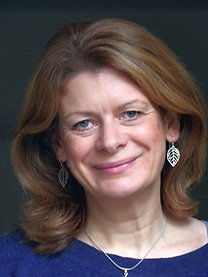My Approach
As a Humanistic therapist I help you to recognise your strengths, creativity and choices in the 'here and now'. This means I focus on the whole of your experience including your thoughts, feelings and actions, to promote self-awareness and development. Past events, experiences and relationships are still of great importance but are explored in relation to their influence on how they impact you in the present.
I believe we all have the capacity to break free from negative behavioural or thinking patterns to bring about positive change to in order to feel better within ourselves and to foster healthier and happier relationships.
The relationship between Counsellor (me) and Client (you) is actually the most important factor in determining the outcome of therapy.
Our relationship together is one created on a foundation of trust, confidentiality and respect. These foundations allow me to offer you a safe space where you can express feelings, attitudes and beliefs openly and freely without fear of judgement, so they may be explored fully to bring about understanding and acceptance.
When the other person is hurting, confused, troubled, anxious, alienated, terrified; or when he or she is doubtful of self-worth, uncertain as to identity, then understanding is called for. The gentle and sensitive companionship of an empathic stance… provides illumination and healing. In such situations deep understanding is, I believe, the most precious gift one can give to another.
Carl Rogers
Whilst the reasons people come to counselling can be similar, each individual’s experience is unique. My integrative approach is based upon the Humanistic values of counselling and psychotherapy and allows flexibility to work in a way best suited for each individual by drawing from the harmonious theories of:
- Person-Centred Therapy,
- Gestalt
- Existential Philosophy
I also use a combination of: - Cognitive Behavioural Therapy techniques
- Solution Focused Therapy
- Transactional Analysis tools
Areas of Specialism
LIVING WITH ILLNESS, END OF LIFE, BEREAVEMENT AND LOSS
I spent four years working for Phyllis Tuckwell Hospice as a Counsellor supporting patients and their families coping with the effects of chronic or terminal illness and bereavement. Navigating our way towards death or through grief can be challenging and hard to talk about, especially with those closest to us. I have a special interest in this area, helping individuals to explore their multifaceted and complex spectrum of emotional, physical, cognitive and behavioural responses to loss and change.
STRESS
I have extensively worked with individuals experiencing high levels of stress and have written and delivered Stress Management Workshops to teams in business. Whilst stress is an inevitable part of life, I can help you identify your personal triggers for stress, and support you in implementing personalised strategies to reduce both the psychological and physiological impact of stress.
YOUNG PEOPLE
I currently work as a school counsellor for an independent school in Guildford, prior to this I spent a number of years working for the NHS (Surrey Youth Counselling Service) as a youth counsellor. I also supported young people at Phyllis Tuckwell Hospice, and continue to see many young clients in private practice. In an ideal world there would be more funding for wellbeing programs for young people in education and beyond, but sadly this is an area still needing further funding and development. I feel passionately about working with this client group who increasingly suffer with stress, anxiety and depression due to the ever increasing pressures and challenges they face. The last couple of years during the pandemic have been particularly difficult for young people with so much social isolation, uncertainty and change.
Qualifications
BA (First-Class) Honours Degree in Counselling (Greenwich University)
Foundation Degree (FdSc) in Humanistic Counselling (Greenwich University)
NCFE Counselling Skills and Theory Levels 1-3

